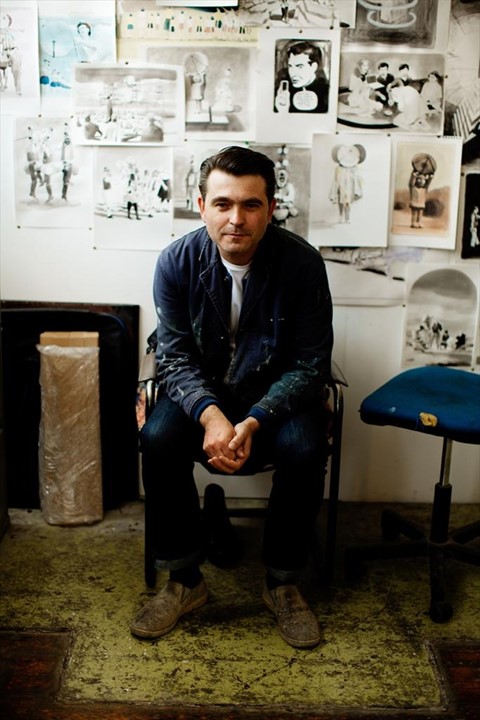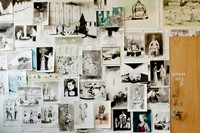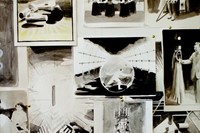Stemming from a lifelong obsession with printed matter dating back to the 1950s, Adam Dix seeks to encapsulate the conflict between the fervent desire for new technology and our nostalgic yearnings for simpler times...
Stemming from a lifelong obsession with printed matter dating back to the 1950s, Adam Dix seeks to encapsulate the conflict between the fervent desire for new technology and our nostalgic yearnings for simpler times. His paintings radiate an eerie glow, reminiscent of television screens from the past – flickering tubes and distorted form. Inks and glazes layered in sugared almond pastel shades, with carefully chosen colour seeping and spreading over the gesso covered panels.
Following on from the success of his sell-out show at London’s Haunch of Venison during the winter of 2010, his work caught the eye of numerous international art collectors and has been exhibited widely throughout the last year. Alongside his collaborative work with Other Criteria, Dix has recently been nominated for the highly coveted Sovereign Art Prize. New work will be showcased in May 2012 at Mayfair’s Sumarria Lunn gallery.
One of your main aims has been to investigate how we relate to technology on a humanistic level, specifically looking at modes of communication. The characters in your paintings are uncomfortably close to electricity pylons, satellite dishes or mobile phone masts. The media have repeatedly warned us about the possible health risks of living in close proximity to these devices. Were does your interest in them stem from?
My mum was a freelance vision mixer who worked primarily for television companies, so I ended up spending most of my school holidays keeping quiet on set while programmes were being filmed – or sitting silently in dimly lit control rooms while she flicked through the monitors. I guess it left me with a composite view of real life and visual manipulation. Seeing the directors frantically cutting from camera to camera, just to edit our final visual moment. It never stopped me watching TV. I think it only emphasised my knowledge of all the workings below the surface, but not in any sinister way. As I grew older, I developed an interest in science fiction, old B-movies and the space race. I started to wonder what might happen if humans were suddenly forced to obliterate all forms of technology – only to be reintroduced to it again. Cult-like behaviorisms in scenes reminiscent of The Wicker Man sprung to mind – with the masses beginning to worship these relics of a bygone era.
"I started to wonder what might happen if humans were suddenly forced to obliterate all forms of technology – only to be reintroduced to it again"
How do you feel about the increasing number of young children being exposed to mobile phones and the internet? Is this something we should be concerned about?
There have always been screens of some sort in contemporary life – TV, Cinema or the iPad. You could argue that, on an aesthetic level, the screens of today are actually offering us all a much truer image. The iPad is just another slice of glass. They have all offered us, over the course of time, similar forms of infotainment. Our use and subsequent response to them, coupled with accessibility and the loss of reality could be real point in question. Developments of Android or iPad apps specifically designed for three-year-olds is something that should be monitored. Children these days are already hooked on technology before they are old enough to make an educated choice.
You once said “I’ve been around the block a few times, but not necessarily the right block”. Will we always struggle with the same internal battles that arose during our formative years? Art provokes a response – but can it change the course of a life?
The remanence of your past is always with you, and any difficulties you’ve experienced along the way will always go with the territory. Yes, I think art, visual or written, should be an individual’s response to, and the questioning of our past and present society. This should reflect a constant exchange of differences in opinion and natural curiosity. You should never stop asking “why?”.
Who would be your ideal six dinner party guests (dead or alive)?
Marshall McLuhan, Richard Hamilton, Adam Curtis, Arthur C. Clarke, Mary Shelley and Judith Hann (the Tomorrow’s World presenter!).
Leanne Cloudsdale is a London-based writer. She has previously contributed to titles including AnOther, Arena Homme Plus, i-D and Inventory.



